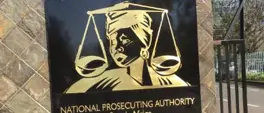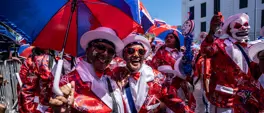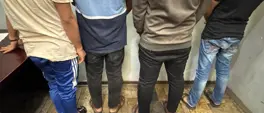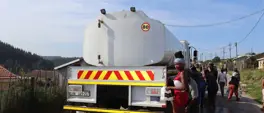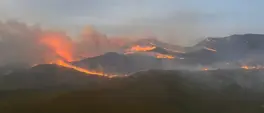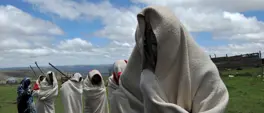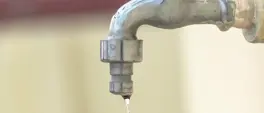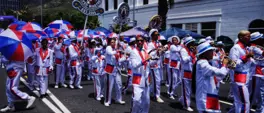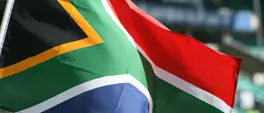MANDY WIENER: We're NOT living in the dreamland the Constitution was written for
Mandy Wiener
14 September 2023 | 4:30We're not living in the land the architects of the Constitution envisioned, writes Mandy Wiener. We must protect our institutions!
OPINION
When the architects of the Constitution were crafting the document in the early 1990s, they may not have envisaged the type of subterfuge, shenanigans, and political gluttony of our elected officials. They may not have considered the potential of their comrades to prioritize themselves and their bank balances ahead of the downtrodden masses of the electorate.
Sure, they did have the foresight to ensure that there were processes in place which required checks and balances, to keep politicians in line. The idea of the doctrine of separation of powers is one of these. The legislature, be it parliament, the provincial legislatures or local councils, make the laws and monitor the executive. The executive, which is the President and the cabinet, makes policy, proposes laws and then implements those laws once they are passed by the legislature. The judiciary upholds the laws and administers justice.
Chapter nine institutions are there to protect, guard and support democracy. These include the office of the Public Protector, the IEC, the Auditor General, etc. They are independent of the government but, according to law, have the authority to order other state institutions to take appropriate remedial action against impropriety made by the government.
Then of course there are those institutions that uphold and implement the laws of the land such as the SAPS, Hawks, SARS, SIU, SSA and the NPA.
For democracy to function, all these various institutions need to operate optimally and without any political influence or taint of bias.
That is perhaps the ideal envisaged by the architects of the constitution in a land where we all wear doves on our T-shirts and PJ Powers is singing World in Union.
The reality, however, as we have witnessed in South Africa, is that the institutions have all been key sites of political capture. They have been maliciously targeted in deliberate campaigns to weaken democracy and the rule of law.
During the Jacob Zuma presidency, an intentional, targeted operation was carried out to eviscerate various institutions, reduce capacity and hollow out the ability to hold power to account. Many of these were captured at the head with pliable and incapable leaders who ran the organizations into the ground and allowed them to be abused to fight proxy political battles.
The evidence of this was laid bare for all of us to see at the State Capture Commission.
What we learnt from that brutal exposition was that we must keep sentry over those institutions which exist to strengthen and guard democracy. It is why we repeatedly saw civil society organizations like Casac and Freedom Under Law, the Helen Suzman Foundation and the Ahmed Kathrada Foundation go to court to defend these institutions from capture.
What happened at the Office of the Public Protector was no different to the attempts we saw during the State Capture era to incapacitate other institutions.
Under Advocate Thuli Madonsela, herself one of the authors of the constitution, the Public Protector was a warrior in defence of the rule of law, protecting citizens, the “Gogo Dlaminis” from the abuse of office by elected officials.
It was because of Madonsela’s State of Capture report that the State Capture Commission of Inquiry was born. Speaking truth to power, Madonsela did the very job she was elected to do – acting in the interests of the citizens by calling out wrongdoing by the government.
Upon her exit, the ANC under Zuma sought to back a more pliant candidate to succeed Madonsela. It was with great glee that Zuma’s MPs pushed the process to see Mkhwebane elected. The process to appoint a Public Protector is a largely transparent one but it is still primarily left to MPs and the influence of political parties to determine – a process which we now know needs review. Only the Democratic Alliance opposed her election.
Several dozen court judgments and millions of rands in legal fees later, the office of the public protector has no doubt been weakened.
The process to remove Mkhwebane, through a Section 194 inquiry, took more than two years. It cost the taxpayer more than R160 million. That process, we now know, also needs to be reviewed. Because the ANC had the numbers in Parliament, they were able to remove her.
What if there is a very capable PP in the future, who does his or her job properly but falls out of favour with the ruling party? They too could be impeached in Parliament with a two-thirds majority vote. This could have a chilling effect on the ability of the PP to do their job without upsetting the political elite.
Legal analyst Mpumelelo Zikalala, on the Midday Report this week said that ‘some may even interpret that, even if you’re not liked by the majority party for some reasons and you are competent in terms of doing your job, just by the mere fact of having the numbers you are going to be removed. I don’t think the drafters of the Constitution had that in mind when they included those points’.
Zikalala argues that this could render the Office of the Public Protector nonfunctional, and it could even harm the brand of the office. How can the public trust it, if they don’t have the confidence that it will adjudicate the matter without fear and favour?
We need more robust checks and balances to deal with the threat to our institutions that are there to strengthen and guard democracy – far beyond what the authors of the Constitution envisaged possible at the dawn of the rainbow nation.
Get the whole picture 💡
Take a look at the topic timeline for all related articles.
